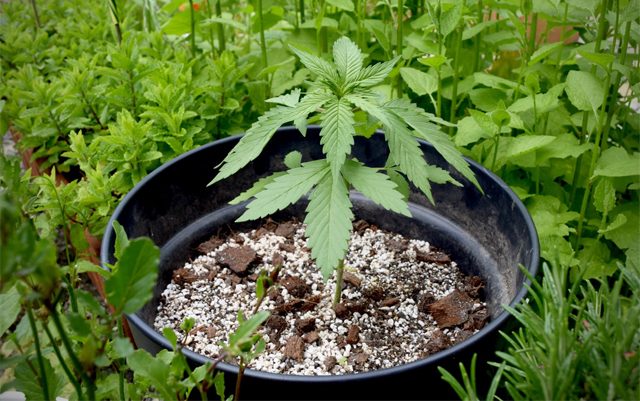Shortages seem to be an issue in almost every state that legalizes medical or recreational marijuana. Though some states have managed to keep this problem to a minimum, many dispensaries still see shelves run bare in those first few months after legalization begins. Illinois, where the adult-use market has only been up and running since the start of the year, is currently experiencing shortages. The state has seen nearly $40 million in sales since January – but that comes at a cost for some medical marijuana patients who shop at the same dispensaries that sell adult-use cannabis.
“There’s a statewide shortage of all products, and patients are suffering from that,” medical marijuana patient David Kurfman said. “I hope to transition to growing my own medicine.”
Kurfman, and many other medical marijuana patients in Illinois, are planning to take advantage of another new law, one that allows patients 21 and older to grow up to five plants. That is, if those plants remain in an “enclosed, locked space” that is either within a residential building with sleeping quarters and indoor plumbing, or in a greenhouse or shed on site. However, if you go the greenhouse or shed route, the structure must remain out of public view – and landlords retain the right to ban growing cannabis on their property.
For those who decide to go ahead and grow for themselves rather than rely on dispensaries to have their medicine in stock consistently, the biggest problem could be getting the seeds to get started. Dispensaries are supposed to supply seeds to patients, but cultivators aren’t growing seeds, so they are hardly ever found for sale. This leaves patients with few options, the easiest of which is buying seeds online – and all of which are federally illegal.
“The administration is working with various state agencies, cultivators and dispensaries to develop a clear process that will allow the sale of seeds to medicinal users,” Charity Greene, spokeswoman for Gov. J.B. Pritzker’s administration, wrote in an email.
It might take some time before dispensaries in the state are able to keep up with demand – and home growing isn’t an immediate solution. Even patients who start growing today won’t have any usable product for months. In the meantime, they are forced to hope their medicine is available when they need it. The best thing patients can do to ensure they don’t run out of medicine – even if they are turning to growing as a long-term alternative – is to restock their supply before they run out whenever possible.






